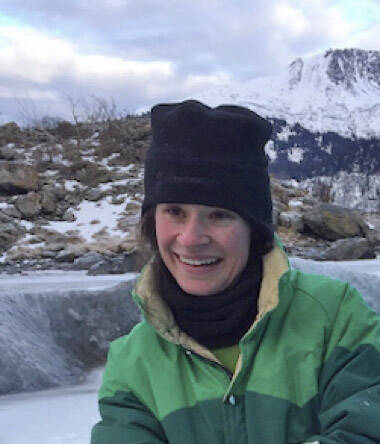The chair of the Homer Planning Commission at a regular meeting this month called into question the science of climate change. That’s a problem, because the climate is changing, with real negative effects for Homer and Kenai Peninsula. We are seeing big effects related to bluff erosion, landslides, water security, fire regimes, fisheries and more.
The Kachemak Bay Conservation Society has a recent blog post up on our website detailing the breadth of the climate issues we are facing, but here’s a few highlights:
Over the past half-century, annual available water has declined 62% on the western Kenai Peninsula.
There is a projected 66% increase in the estimated value of human structures (e.g. homes, businesses) that are at risk to fire in the next half century on the Kenai Peninsula.
Erosion rates on eastern shores of Cook Inlet are 1 foot per year, and 2.3 feet per year in the western Homer area — erosion here is normal, but the rates of erosion go up when we get more rain events (think January 2025).
Current trends indicate that the southern Kenai Peninsula will lose 10-20% of our snowpack by 2030-2059.
You can listen back to Chair Scott Smith’s comments at minute 3:49:08 of the meeting recording for March 19 on the City website. Hearing people’s responses is also worthwhile.
Having someone who calls into question climate science is a problem because the planning commission has a lot of power. They get to say what goes where in Homer, what lands get developed and which do not, and what kinds of development go in.
In fact, Chair Smith made these statements as he was advocating removing the concept of human-driven climate change or climate action from the Comprehensive Plan. He was advocating overriding the 63% of residents who think it is important to prepare for and address the effects of climate change, per robust Comp Plan public surveys. He was advocating undermining the 74% of the public who think it is important or very important to invest in renewable energy.
The chair’s denial of reality, and his denial of the basic premise that he is there to represent the will of the public is unacceptable. It is, however, how this planning commission has been operating recently: ignoring important environmental constraints, and acting like the Comprehensive Plan (the document that tells the commission how to interpret our laws) has no bearing on their decisions.
It is not good to have someone in climate denial as chair of the planning commission, even if he’s a nice guy. Perhaps it’s a good time to consider how these commissioners get appointed (talk to the mayor and to council). If you have any spare time and care about public service, please consider putting your name in the hat to serve on this commission. Now is an especially important time, because Homer is in the process of rewriting city code.
Penelope Haas is the vice president of the Kachemak Bay Conservation Society.


